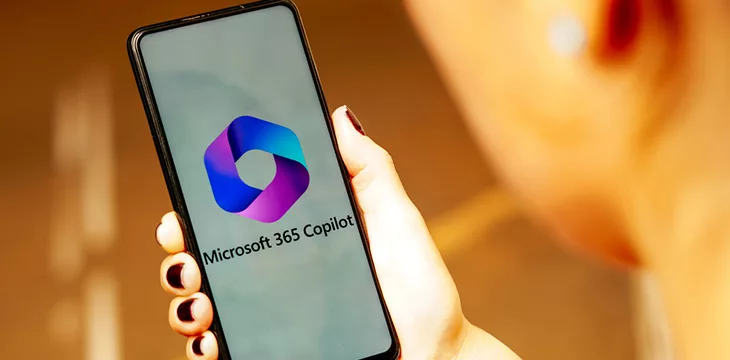|
Getting your Trinity Audio player ready...
|
Microsoft’s (NASDAQ: MSFT) foray into artificial intelligence (AI) shows no signs of slowing down, with the technology giant confirming the addition of an “AI Copilot” key to Windows keyboards in 2024.
The tech giant said introducing an AI Copilot key is a leap toward “more personal and intelligent computing.” The move marks the first major update to the Windows keyboard in nearly 30 years since the addition of the Windows button back in 1994.
The Copilot key will allow users access to a suite of Microsoft’s AI capabilities, bringing generative AI to a wider class of users. With the push of the button and a few clicks, users can generate text, images, or use AI-powered search for improved productivity or to satisfy curiosity.
“Nearly 30 years ago, we introduced the Windows key to the PC keyboard that enabled people all over the world to interact with Windows,” according to Microsoft. “We see this as another transformative moment in our journey with Windows where Copilot will be the entry point into the world of AI on the PC.”
Microsoft says new Windows 11 devices will be rolled out with the Copilot key, allowing users to interact with the AI-powered virtual assistant. The Redmond-based company disclosed that the new keyboard upgrade will apply to its Surface devices in a push to make Windows the spot for “the best AI experiences.”
Yusuf Mehdi, Executive Vice President, Consumer Chief Marketing Officer at Microsoft, describes the new push in 2024 as “the year of the AI PC.” In the future, Microsoft confirmed that it is rolling out new system architectures to support its push into AI, thanks to support from its silicon partners Intel (NASDAQ: INTC), Qualcomm (NASDAQ: QCOM), and AMD (NASDAQ: AMD).
“In this new year, we will be ushering in a significant shift toward a more personal and intelligent computing future where AI will be seamlessly woven into Windows from the system to the silicon, to the hardware,” said Mehdi.
The tech giant notes that the push will “blur the lines between local and cloud processing” with the company fully embracing AI. The company has since renamed its Edge Browser to “Microsoft Edge: AI Browser” signaling a quick march into the emerging technology.
Throwing its weight behind AI
Microsoft’s $1 billion investment into OpenAI in 2019 marked the company’s first major interest in AI. Five years later, with $10 billion sunk, Microsoft is proceeding at full steam with the launch of Copilot and a next-generation Windows AI release in the works.
The company has since announced AI integrations across its consumer products and offerings while racking critical private and government partnerships.
“Every customer solution and every layer of our tech stack will be reimagined for the AI era,” said Microsoft CEO Satya Nadella. “And that’s exactly what we’ve begun to do.”
Amid the pomp, experts have pointed out that blockchain can improve Microsoft’s AI offerings by using time-stamped records and eliminating centralized databases for additional safeguards.
In order for artificial intelligence (AI) to work right within the law and thrive in the face of growing challenges, it needs to integrate an enterprise blockchain system that ensures data input quality and ownership—allowing it to keep data safe while also guaranteeing the immutability of data. Check out CoinGeek’s coverage on this emerging tech to learn more why Enterprise blockchain will be the backbone of AI.
Watch IEEE COINS Conference highlights: Intersection of AI & blockchain

 07-05-2025
07-05-2025 





